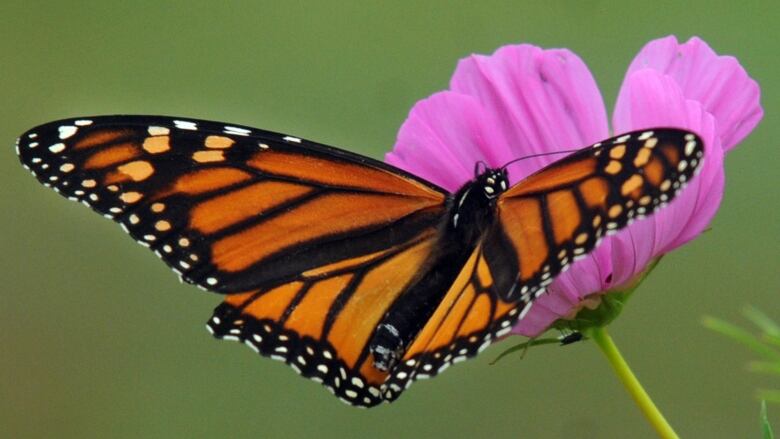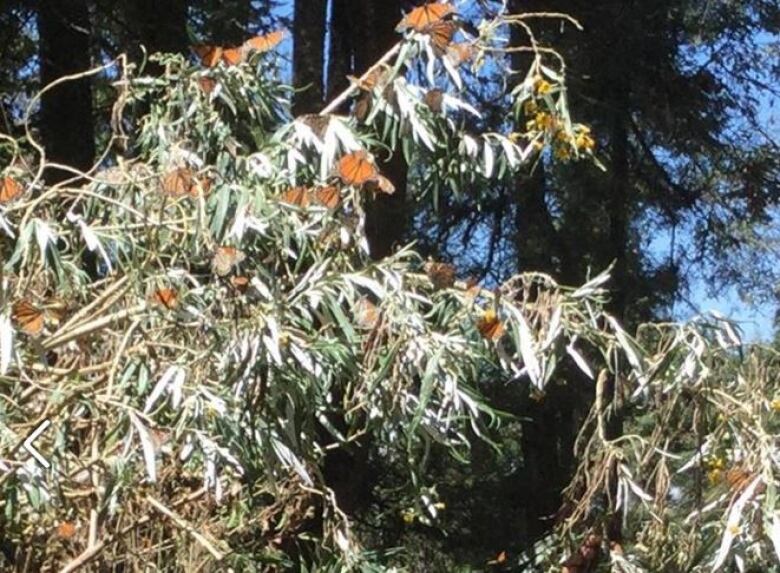Good chance for Monarch sightings this summer, researcher says
Butterfly researcher calculates only 15 per cent of Monarch population was lost in Mexico's cold snap

A butterfly researcher in Mexico says New Brunswickers have a good chance of seeing Monarchs this summer.
Pablo Jaramillo has been studying the effects of a major storm last month in the butterflies' wintering grounds.
A freak winter stormhit the mountains where monarchs roost, leaving butterflywatchers here fearing theremay not be many left to make the long trip to New Brunswick.
Jaramillo says surveyorshad a chance to explore two out of three colonies affected, and based on preliminary calculations, only about 15 per cent of the population was lost.
"The storm was really severe, but the effects were not as severe as we thought in the beginning," Jaramillo said Wednesday duringan interview on CBC'sShift.

Jaramillo says amazingly, a lot of the butterflies were not affected.
However, he has no information from the El Rosario colony, which was the worst hit.
Snow-crusted butterflies appeared to be still clinging to trees in photos posted on Facebook by Homero Gomez Gonzalez, the chair of the sanctuary there.
Jaramillo says he's optimistic the population will recover. Some have already begun arriving in the United States.
"I think it's going to come back. If these butterflies make it back, if the conditions are right for an abundance of food and the right weather conditions, the population will come back," he said.
"Be on the lookout for Monarchs. And hopefully [butterfly watchers]can record their observations and share them with us," viahttp://www.journeynorth.org.
Very few individual Monarchs make the round trip between Canada and Mexico.Rather, females lay their eggs along the way and successive generations continue the journey.As they move north, the population spreads outward.
That means the butterfliesare most susceptible to singular crises, when the population is at its most concentrated in the biosphere in Mexico.
With files from Shift












_(720p).jpg)


 OFFICIAL HD MUSIC VIDEO.jpg)
.jpg)



























































































